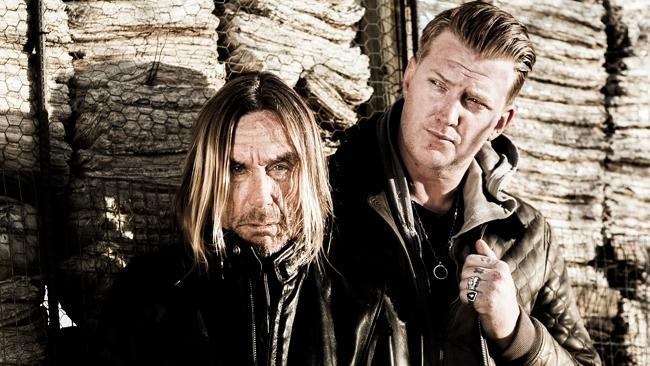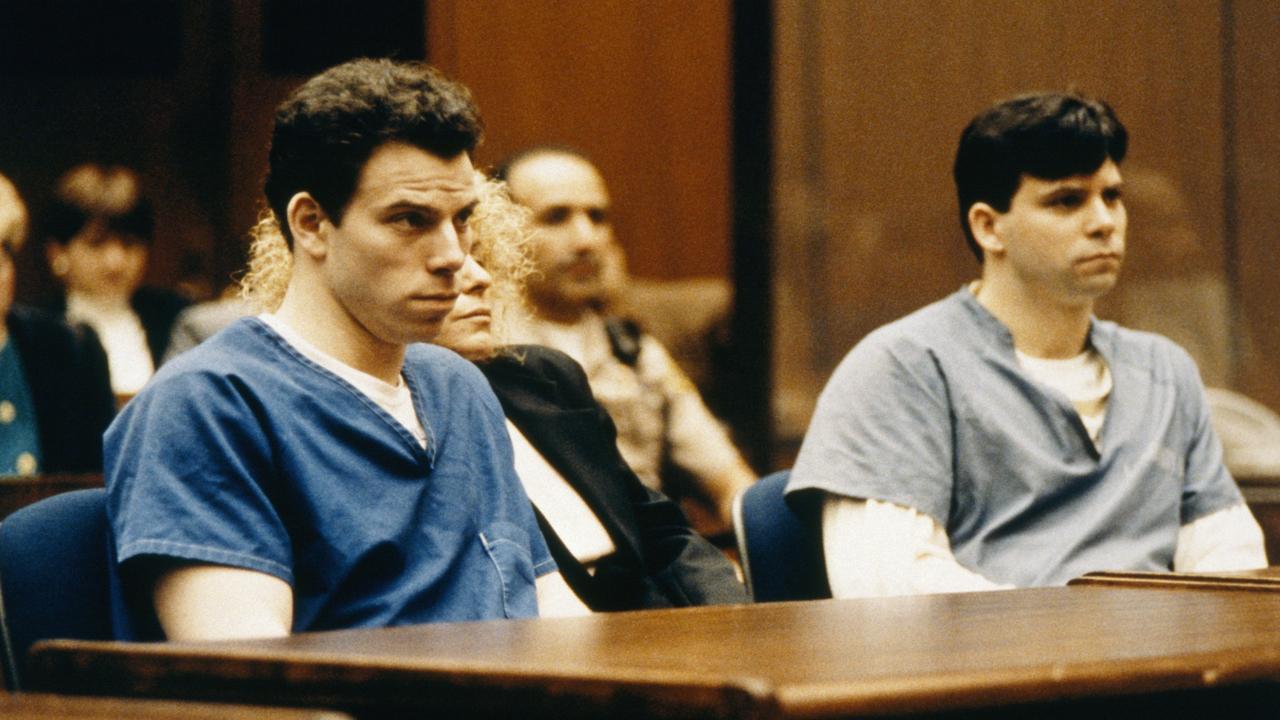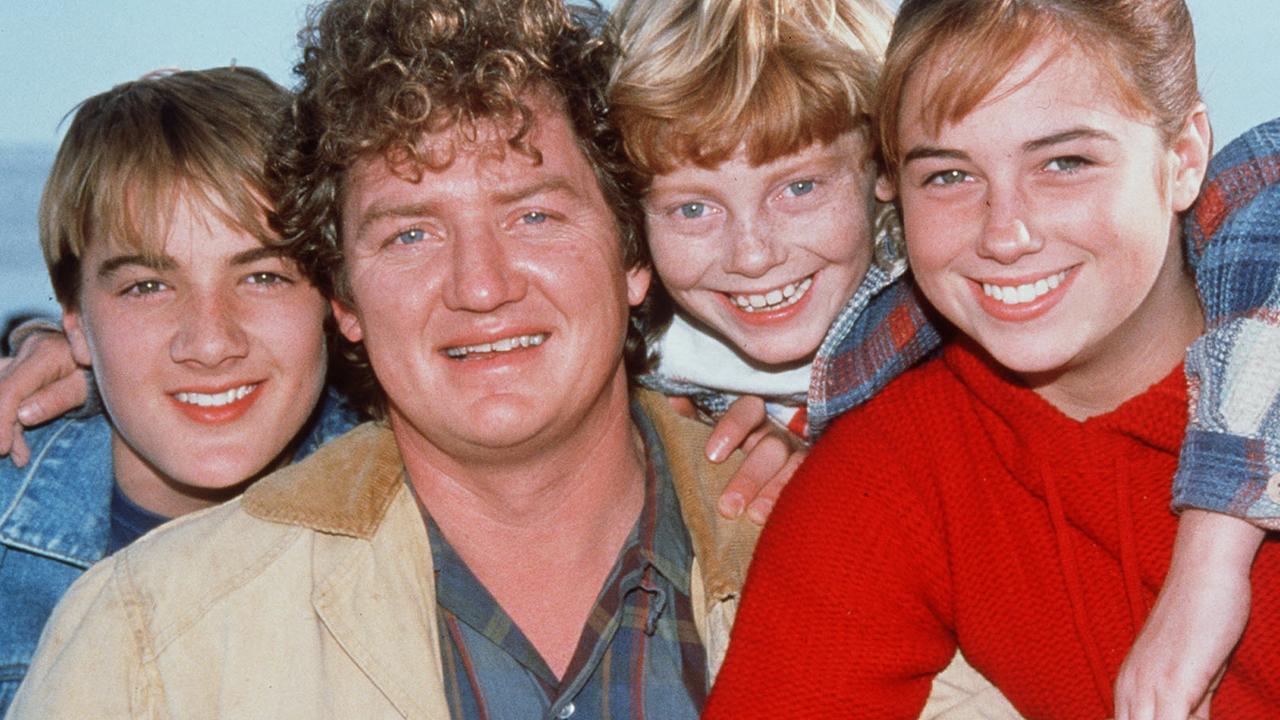Iggy Pop’s new album with Josh Homme a case of Post Pop Depression
Punk provocateur Iggy Pop talks lust, life and his faith in fellow musician Josh Homme.

Josh Homme describes it as “the greatest thing I’ve ever received in the mail”. The Queens of the Stone Age frontman, 42, is a big fan of Iggy Pop, 68, one of rock ’n’ roll’s greatest agent provocateurs, but the two singers know each other only in passing. Then one day there’s a parcel with a Florida postmark in Homme’s Palm Springs mailbox, with a note inside from one James Osterberg, or Iggy, as he is known. The parcel contains extensive notes on Pop’s sex life.
“It was quite a volume of stuff,” says Homme, “including Walt Whitman poems and his own poetry, and some notes on Germany.”
That was in January last year. Pop, a long-time admirer of Homme, was looking for a conduit to the next phase of his career and texted Homme asking if he’d be interested in producing his new album. Then he sent the parcel.
The 21st century has been a varied one for Pop. The band that made his name in the late 1960s and early 70s, the Stooges, enjoyed a renaissance propped up by two albums. Pop also made a handful of solo albums, the two most recent ones sung mainly in French. He acted in movies and lent his distinctive voice to characters on television ranging from a caterpillar to a rock drummer. He became a radio DJ at the BBC. The next step, he decided, would be to make an album that, at least in part, drew inspiration from the classic first two solo albums, The Idiot and Lust for Life, he made in Berlin with his friend David Bowie in 1977.
“I felt the time had come for me to throw down my very best effort in terms of an English-speaking, capital-A album and all that it entails,” says Pop in that familiar rich baritone. In conversation the singer, who for many years has lived on the coast just south of Miami, is a far cry from the confronting “streetwalking cheetah with a heart full of napalm” who emerged from Detroit’s underground and who for close on 50 years has been flinging his naked torso across the world stage. He’s funny, smart, self-deprecating and passionate about his craft, or crafts, as they are now.
He won’t talk about Bowie’s death because he finds it difficult so soon after the event, but he admits that there are elements of his new album, Post Pop Depression, that hark back to those Berlin records. Also included in the parcel to Homme were extensive notes on the songs from that landmark period, such as Lust for Life, The Passenger and China Girl, to name a few.
“It was a man trying to explain himself,” says Homme, “but also casting a wide net, seeing if I could read between the lines.”
There were a lot of lines to get through. Homme spent three months going over the material Pop sent him, which, according to Pop, covered a lot of ground. All the while, Pop was fretting that maybe he had scared off his potential collaborator.
“I realised I had a whole treasure trove of writing saved up,” he says. “So I sent him a dossier on me. It was like an Iggy sampler, with about a dozen vignettes about my love life, or, to be blunt, about my sex life; love too, my romantic life that I had written about in the 90s. I sent him a couple of those. I gave him some poetry that I wrote, purpose-built for him, and I also sent him a few pages of detailed, mostly technical details of how The Idiot and Lust for Life were made — who played what, which melody in which order, what sort of musicians, what sort of atmosphere.
“I sent him another essay on why I moved to Miami and what [it was like] when I got here. One was called German Trivia (renamed German Days on the album). It was meant to entertain him. It started it with, “Hey, do you know what they call a dick in German?” Badda bing, badda boom … all the way over to the seriously morose poetry that you write when you’re 68. It was confronting and nerve-racking. After I sent it to him he sent me one line saying, “This is wonderful stuff”, and then I didn’t hear from him. I thought I must have grossed him out.”
On the plus side, Pop was aware that Homme was a fan of those Berlin albums. That, says Homme, is an understatement.
“Those records were hugely instrumental in my life,” he says. “When I was in first band Kyuss, I really didn’t listen to much music then, apart from Black Flag and some English stuff. Then our sound guy played those records when we were touring in Germany. It wasn’t the reason I quit my band, but it was the straw that broke the camel’s back. These are records that say what I want to say but say it better than I could say it.”
Eventually a dialogue began between the two men, ideas floating back and forth, Homme suggesting lyrics based on Pop’s writing, a few musical ideas, until it was agreed that they would make a record together. So it came to pass that Homme and Pop, accompanied by QOTSA guitarist and keyboards player Dean Fertita and Arctic Monkeys drummer Matt Helders, set off for Homme’s studio in Joshua Tree, California, to make Post Pop Depression.
Pop likes being part of the Miami community. Just recently he gave a lecture (“I was terrified”) to a bunch of undergraduates in Miami on the topic of what it’s like to be Iggy Pop, what it was like back in the day, what it’s like now, what it meant when he was a teenage drummer in the Iguanas in Ann Arbor, Michigan, trying to turn his adolescence into something real, something with prospects.
“I talked about my life and times from my point of view,” he says, “what my struggles were to gain the privilege to live some kind of a life, or have some kind of a role related to my inner self. That’s a big struggle for everybody.”
It’s a long and complicated story, with plenty of struggle along the way. Pop’s band the Stooges, punk rock progenitors that they were, set the singer on a path of rock rebellion, but wealth and fame would have to wait. The group’s albums, such as their self-titled debut (1969), Fun House (1970) and Raw Power (1973) were commercial flops and gained credibility and sales only during and after the punk era, which took those albums’ anthems, such as Search and Destroy, Your Pretty Face is Going to Hell and 1970, to its anarchic bosom. In his solo career too, albums such as Instinct, Brick by Brick, Beat Em Up and Naughty Little Doggie have been mere blips on the royalties radar. Among all that, however, two pieces of work stand out. Since they emerged in the late 70s they have stood the test of time, indeed transcended it, have been highly influential to a wealth of artists and, through the tragedy of Bowie’s death, in the past few months have enjoyed renewed scrutiny and praise.
The Idiot and Lust for Life saved Pop’s career and so did Bowie. The English star took him under his wing when his Stooges tenure degenerated into a heroin-fuelled shambles. Bowie took him on the road with him, which opened the American’s eyes to rock stardom on a grand scale. He liked what he saw. Then the pair headed to Berlin. Those albums, recorded and co-written in quick succession with Bowie, relaunched Pop’s floundering career. Pop is proud of those records, if not the person he was just before he made them. He’s a different man these days, he says; more content.
“My big problem in life has always been maturing,” Pop says, making himself laugh at the realisation. “I’ve started to mature. I did so grudgingly for many years. I hated it. Then you grit your teeth and say, ‘This is what I gotta do.’ The big thing is that I’ve become more comfortable in my own skin than I was. I’ve become more mature, secure … but not entirely secure or comfortable.”
Pop’s world is not one of private jets and limousines. In the middle of last year he arrived on Homme’s doorstep with a backpack, ready to set to work on the songs for the new project, most of which had yet to take shape.
“I had about seven songs and I knew two of them were good,” he says. “That’s typical, by the way. I told Josh I wanted to do something that sounded a bit cabaret. I think that scared the shit out of him … that it would be corny.”
Post Pop Depression is not cabaret, nor is it pastiche, but there are obvious traces of Berlin in a few of the songs, most notably Gardenia, which has a distinct, grand electro-pop, Bowie-esque sheen to it, with shades also of Pop’s carnal confessions, featuring lines such as “your hourglass ass and your powerful back” and “all I want to do is tell Gardenia what to do tonight”.
“I noticed after a while that the verse sounded something like a Bowie approach,” Pop says. “If you’re going to work with a guy it helps to have a good influence. And that’s a good influence … as long as you don’t take it too far.”
Significantly, the band performances overall are solid and inventive, but leave plenty of room for Pop’s voice to dominate.
“I needed to find a situation that would give me vocal space, melodic articulation and a dialogue that would help bring out whatever I might have as a lyricist,” Pop says. And he found that in Homme, for whom he has only praise.
“I didn’t realise it until our dialogue began, but I realise now how open and interesting and intelligent this guy is,” he says. “The interesting thing about him is that he’s only in his early 40s, but he’s been in about five bands and he has worked with all of these different people.”
Homme not only fronts Queens of the Stone Age but is a part-time member of Eagles of Death Metal, the band, touring Australia this month, that was on stage at the Bataclan club in Paris during the terrorist attack last year. Homme wasn’t with them then and won’t be joining them in Australia. He was also in the occasional outfit Them Crooked Vultures with Dave Grohl from Foo Fighters and Led Zeppelin bassist John Paul Jones.
Homme says the album is “the coolest thing I’ve ever been allowed to be a part of. It’s the top of my list and I don’t have a second or third thing on my list.
“When I work on something you get all of me,” he says. “I throw myself into it. I feel like Iggy came to me understanding that.”
Pop and Homme financed the new album themselves. The pair and a band featuring Helders, Fertita, QOTSA’s Troy Van Leeuwen and guitarist Matt Sweeney will do a short run of gigs in the US and Europe to promote the album and Pop says there is a good chance we will see them in Australia in January next year, although no dates have been finalised.
“I want to come and Josh is dying to come,” he says. “I really like the summers there. I’d like to do it.”
The rock veteran has fond memories of his regular Australian visits as a solo artist and with his band the Stooges in recent years. He can even remember with admirable clarity that legendary performance on Countdown with Molly Meldrum in 1979, the one in which he was clearly lip-synching to his song I’m Bored and leapt up and down from his chair while Molly was interviewing him.
“I was alone in a strange place during playback, and not the most stable person,” he says. “When I got there and met the people I realised I was the proverbial fish out of water. That was my interior feeling. I thought I’d have to make the best I could with it, which was not to take it too seriously. I didn’t want to be a prick about it, but I didn’t want to give it serious credence. So I opted for a kind of comedy, in a way, to avoid answering his questions. There might have been a little whisky involved.
“I thought the performance actually for a solo guy doing a playback for a bunch of nine-year-olds was pretty decent. I did the moves in the right place and by the end of the song everyone realised that I was bored. I do remember it.”
Other than his upcoming shows and more voiceover work, Pop is uncertain about what lies ahead. There is even a suggestion that Post Pop Depression will be his last album, an idea that stemmed from a conversation with Homme in the studio.
“To make a real record and then to do it justice afterwards ... to do the things you have to do in order for it to have a chance to be heard, is a huge undertaking,” Pop says. “It looks like a gas for me from the outside, but it’s actually not like that. It’s hard work and also it’s the intensity of dealing, in some sense, with what is called the public. That is something to be handled with great care. I thought it might be worth considering doing other things. Not doing shows. I thought it might be a good idea to not keep trying to squeeze out another one.”
Watch this space on that one.
Post Pop Depression is released on March 18 on Caroline Australia.


